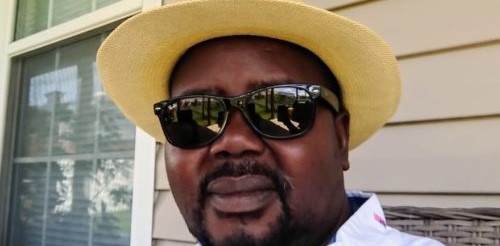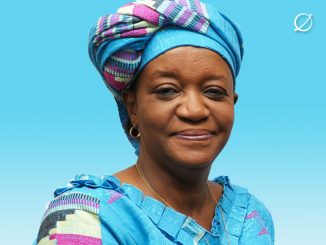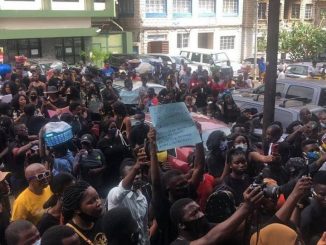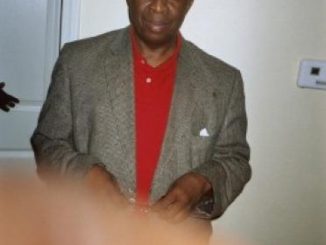
True Independence & Freedom Can Only Exist In Doing What Is Right.
It was 64 years last Sunday when Sierra Leone gained its independence from its colonial master, Great Britain. It marked the end of an era and the dawn of another. Independence meant that Sierra Leoneans took over the reins for self –rule, self –determination, self-actualisation, self-emancipation, self-development and liberation. Independence meant that Sierra Leone was in a new phase of decolonisation, autonomy, self-empowerment, African nationalism, African renaissance, pan-Africanism and sovereignty. The concept of African independence has taken lots of sematic configurations to portray the various strands and brands of independence. Some historians would fondly refer to our nation’s independence as the day Bai Bureh’s vision and resistance came to fruition. The 27th April, 1961 encapsulated the saying that, “slavery lasted for years but freedom lasts forever”, a balm used to smoothen over the scars of slavery and colonisation.
It is interesting to note that this epoch defining moment has been viewed, received, marked, celebrated, mocked, and ridiculed with varying levels of disillusion, disappointment, and schadenfreude, hope and in some cases utter condemnation. The reasons for several emotive reactions are obvious. These days, our independence celebrations are rather, generally lukewarm in manner. The nation would like to make this a yearly historic national event. In my day as a student in primary and some part of secondary schools, April 27th was a date to look forward to. We had a special ceremonial uniform which included our trainers (Skaytee) that we polished with Blanco, we had little green, white and blue flags, and marched the length and breadth of the town. This was followed by a ceremonial feast with jollof rice, soft drinks and snacks. We burst our lungs with all three verses of the national anthem. The rest of the day was filled with sporting events that we celebrated with reckless abandon. When was the last time such an event took place to mark our independence?
Some will say that times have changed and these nostalgic references do not have much relevance today. Why? In those days, we had a lot to celebrate. The sense of citizenship was not replaced by tribal or regional loyalties. Elections and politics were equally practised along similar lines like today but the sense of nationhood, citizenship, and oneness always triumphed after the election season. When you look back at Sierra Leone’s history and its historical relevance in West Africa as the blueprint, the “nation of firsts” and as a pioneering country of 19th century West Africa, the importance of such an occasion should not be lost on any one, and especially us citizens. It is worth celebrating all the hard work of our freedom fighters like Sir Milton Margai, John Karefa Smart, Siaka Stevens, Isaac Wallace Johnson, Sir Albert Margai, Lamina Sankoh, Banja Tejan-Sie, Ella Koblo and many others.
Unlike those days, the antagonisms today have been transformed into permanent political badges and now represent the political chasms among us. Tribalism and regionalism seem to be the only choice on the political menu. Do our politicians have policies, dreams and visions to offer other than tap into our banks of emotional distress and turn us against one another, as if “Mmpiaree?”, “Walibaynah, “Ajaramah”, and “Buwaah” don’t share sematic DNAs.
Is Sierra Leone Independence worth celebrating?
This is a rhetorical question that many people ask at this time of the year? You are not expected to dignify the question with an answer. Rather, it should serve as moment of personal and national reflection. In order to calibrate our nation’s independence and in answer to the question, it might be worth visiting the visions, aims and dreams of why and for what our forbearers fought for independence. As a departure point, we might look at all that was inherited and bequeathed to our country and question whether we have been good custodians of the national heirlooms? Don’t answer that. There is no doubt about the several and various political, social, economic and societal phases and upheavals we have been through. There is no doubt that Sierra Leone has had its fair but undeserved share of tragedies. There is no doubt that our country has faced adversities beyond our control.
Taking all that into consideration, we must ask ourselves: “have we helped ourselves? The situation in our country is self-evident and this is not something we can compress into a 10- year time capsule. It has been evolutionary. But unlike other independence anniversaries, this year’s takes a more significant meaning that we cannot escape. We can no longer bury our heads in the sand. The earlier we confront our collective demons, the better. Sierra Leoneans, like many other Africans across the continent are facing a new phenomenon, thanks to the Sahel Spring that is blowing from south of the Sahara and North of the Limpopo.
There has been a seismic shift of the political climate that has coincided with, and triggered by the emergence of The Triumvirate of Ibrahim Traore, Assimi Goita and Abdourahamane Tchiani of Burkina Faso, Mali and Niger respectively. Although these are all transitional governments, they have not escaped the glare, scrutiny, condemnation and admiration of the world. This is specially so for Ibrahim Traore, who has become a political sensation with messianic proportions. It would not be out of place to boldly say that Ibrahim Traore has become the favourite President of the majority of Africans today. That is why, the recent discussion that took place in America by one of its top military Generals has irked many Africans and progress loving people world-wide.
Why is Ibrahim Traore regarded as Africa’s favourite and honorary President?
The euphoria that is surrounding Traore should not blindside anyone into believing that he is infallible. Being human means that he can be exposed to the risks of “power corrupts and absolute power corrupts absolutely. His claim to power was not though the usually desirable method of constitutionally conducted democratic elections. However, what has stood out for now, and far from other hitherto power grabs, Traore seems to spearhead a movement that does not only defies political logic but also long held and established myths about Africa. Traore seems to re-define independence. No one, no country or entity can operate independently. Traore has not invented the wheel. What he has done is change the rules of engagement.
He has changed the master –servant relationship between his resource laden country and its colonisers to one of partnership and respect. He has changed the players of the partnerships. He is changing the notion that Africa is poor and that the continent can only survive by the power of good will, aid, live Aid concerts and charity begging bowls. He is proving that with the desire for self-actualisation, self-pride, and the emancipation and decolonisation of the African mind, there is no reason why Africa cannot accomplish its full resource -based potential. Slowly but surely, Traore is dismantling the myth of African poverty. He is disproving Donald Trump’s aspersions that Africa is a Shi….hole. The deliberate and centuries-old brainwashing that was undertaken to convince Africans that the continent is a synonym for poverty, tragedies, famine, diseases, debt and corruption etc is being challenged and dismantled.
In effect, Traore is redefining what African Independence truly means and how it should look like. Some might say that it’s early days yet. That is unquestionably true. However, we should praise where praise is due and criticise where and when we need to. One of the most telling lessons many would learn from Traore is that, when leaders prioritise the needs of their people, anything is possible. This is why many African countries and their leaders are taking note of what is going on in Burkina Faso. Ibrahim Traore is 36 years old, which seems to resonate with the majority of the young African population. With all that is going on in Burkina Faso, Sierra Leone’s independence celebrations might have been tinged with a hint of envy. Burkina Faso is generating a groundswell of global citizenship of its nation.
Burkina Faso has cotton and gold as their major export earners. Sierra Leone has diamond, gold, bauxite and iron ore as its major exports. Many would be wondering that if Burkina Faso can do it, why not Sierra Leone? Burkina Faso has changed its partners in business and has asked for infrastructural developments instead of financial aid, in exchange for its resources. It has got rid of draconian post independent treaties with France, which were aimed at keeping the nation exploited with the conscience of a chainsaw. It has restored pride it is people, in a country that aptly translates as “the land of upright people”. These are some of the crimes for which France and its allies, including Ivory Coast are losing sleep. This is why Traore is currently singled out by Africa’s perennial hawks, fearful that his brand of leadership is not only a renaissance, an eye opener but also serves as a blueprint for Africa’s potential that has been denied by the twin axes of the west and puppet leaders. Do you expect most of these leaders to sleep well? Now, give five reasons why African countries should celebrate their independence.
By the way, Croydon Borough Council in London celebrated Sierra Leone’s independence with a historic Flag –raising ceremony that was attended by Croydon mayor Kola Agboola and Deputy Mayor Lynne Hale for the first time on Monday 28/04/25(Abdulai Brima-Information Attaché, SLHC-London).
Abdulai Mansaray




Leave a Reply